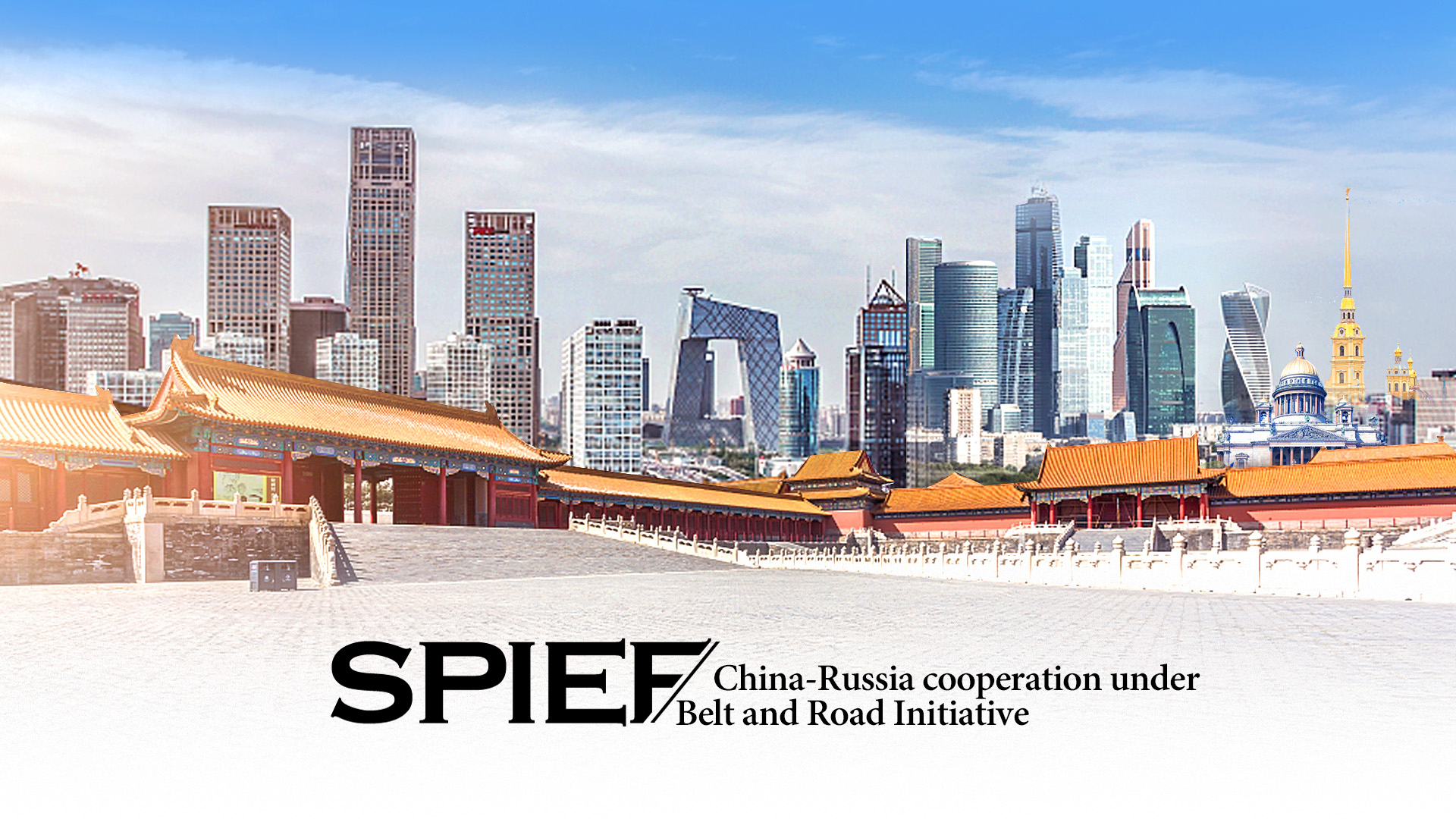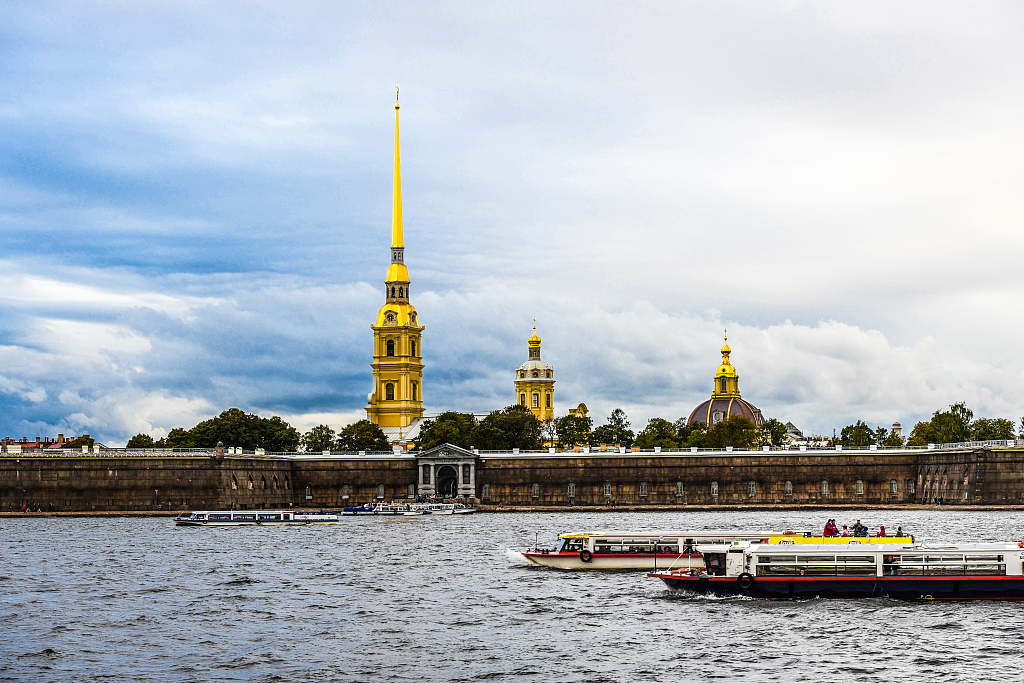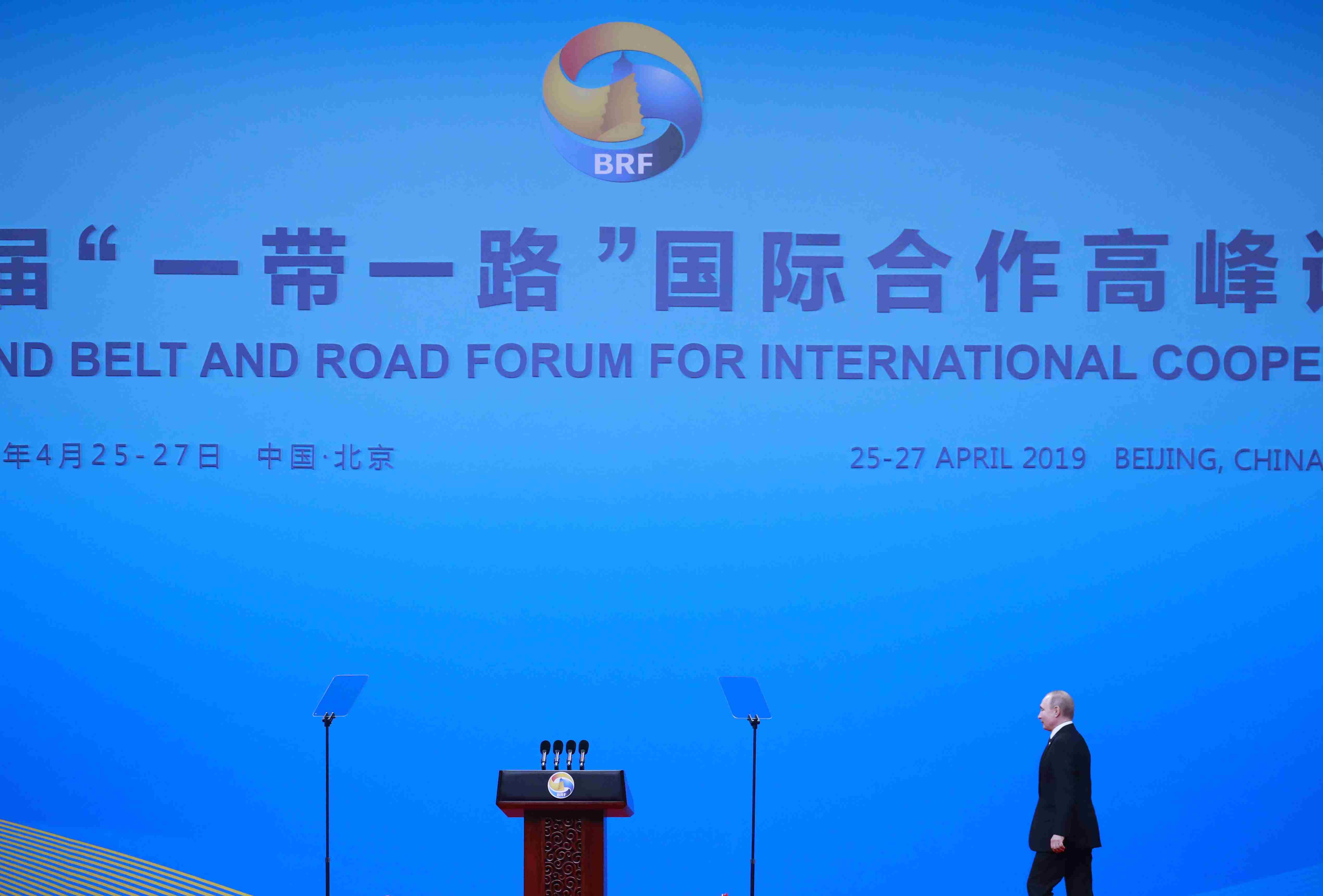
Opinion
17:16, 05-Jun-2019
Huge potential to be untapped for China-Russia cooperation in Eurasia
Vladimir Petrovskiy

Editor's note: Vladimir Petrovskiy is a senior research fellow at the Far East Institute of Russian Academy of Sciences. The article reflects the author's opinion, and not necessarily the views of CGTN.
As China and Russia celebrate the 70th anniversary of the establishment of their diplomatic ties, Chinese President Xi Jinping's visit to Russia highlights the significance of the Beijing-Moscow relationship and its role in the modern world.
The past 70 years have taught the two countries an important thing – the ability to build friendly, good-neighborly relations based on each other's sovereign interests. This is not equated to an alliance, which is overly binding. Chinese proverb "close neighbor is better than a distant relative" can best describe China-Russia relations.
Given their different national interests, China and Russia are independent in the decision-making process, but in the meantime, they need to take their mutual interests into consideration and coordinate their strategies and policies accordingly.
Coordination is vital in Sino-Russian ties, which is also a highlight of President Xi's Russia visit. The two countries are expected to sign a slew of agreements on trade, economy, culture, and humanitarian cooperation during the visit.
High hopes are pinned on the cooperation between the Eurasian Economic Union (EEU) and the Belt and Road Initiative (BRI). President Xi's presence at the St. Petersburg International Economic Forum is an opportunity for the two countries to discuss this issue.

Saint Isaac's Cathedral in St. Petersburg, Russia. /VCG Photo
Saint Isaac's Cathedral in St. Petersburg, Russia. /VCG Photo
The second Belt and Road Forum for International Cooperation (BRF) concluded in Beijing in April summed up the achievements in the BRI construction. Launched in 2013, the BRI is designed to connect countries across Asia, the Middle East, Europe, and Africa with a network of ports, roads, airports, pipelines and other infrastructural projects.
So far, 125 countries and 29 international organizations have joined the BRI. The construction of six transport corridors has witnessed steady progress. Among them, the New Eurasian Land Bridge and the Mongolia-China-Russia economic corridor are of vital importance for Russia.
In his speech at the BRF, President Xi emphasized that China will deepen communications and coordination with all parties based on the openness, inclusiveness and transparency, and adhere to the principle of wide consultation, joint contribution, and shared benefits.
This is especially important for understanding the BRI. The initiative is not controlled by China, but is an international mechanism where participants coordinate based on common principles, goals, rules and the fair decision-making process. The initiative is inclusive to all.
This is precisely what Russia and other EEU member states advocate. Russian President Vladimir Putin said at the BRF that the BRI has something in common with the Russian idea of creating the greater Eurasian partnership, which advocates the integration of various bilateral and multilateral initiatives concerning Eurasia.

Russian President Vladimir Putin during the opening ceremony of the Belt and Road Forum for International Cooperation (BRF) in Beijing, April 26, 2019. /VCG Photo
Russian President Vladimir Putin during the opening ceremony of the Belt and Road Forum for International Cooperation (BRF) in Beijing, April 26, 2019. /VCG Photo
Putin stressed that Russia is ready to put more efforts in creating a transparent and friendly environment that is conducive to the cooperation across Eurasia. Russia, according to Putin, is studying the possibility of connecting the Northern Sea Route and the 21st Century Maritime Silk Road.
In 2015, China and Russia agreed to integrate the EEU and the BRI, which will bring a boon to regional trade. More efforts need to be put in coordinating rules and regulations and the cooperation between the two countries' trade and economic policies based on mutual interests. This is paving the way for the free trade zone between China and the EEU.
In the same year, Putin advanced the concept of the Greater Eurasian Partnership, which is designed to integrate regional economic proposals based on the principles of transparency and mutual benefits. The concept could be realized following the integration of the EEU and the BRI.
The partnership involves the integration of a set of interrelated and interdependent proposals. It will aid the regional and cross-border trade and economic cooperation and promote trans-regional security in Eurasia and the Asia Pacific.
Difficulties lie ahead. But the signing of the Trade and Economic Cooperation Agreement between the European Economic Community and China is the first tangible result of the Greater Eurasian Partnership and will, for sure, lay a solid foundation for future China-Russia cooperation.
(If you want to contribute and have specific expertise, please contact us at opinions@cgtn.com.)

SITEMAP
Copyright © 2018 CGTN. Beijing ICP prepared NO.16065310-3
Copyright © 2018 CGTN. Beijing ICP prepared NO.16065310-3